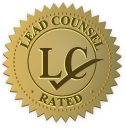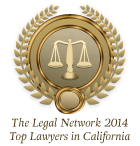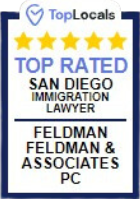San Diego H-1B Visa Attorneys
Read about the H-1B Process in 2025
The H-1B visa allows employers to temporarily employ foreign workers in a specialty occupation. USCIS considers a specialty occupation as one that requires at least a Bachelor’s degree or equivalent and requires theoretical and practical application of a body of highly specialized knowledge in a field of human endeavor. There are great number of fields that qualify for H-1B visas such as architecture, engineering, accounting, scientists, programmers, various health related occupations (such as doctors, Physical Therapists, Occupational Therapists, but not entry level nurses), and many more. The key is whether the occupation requires a Bachelor’s degree or equivalent and whether the foreign national has the degree. The H-1B visa is a non-immigrant visa authorized under the Immigration and Nationality Act, section 101(a)(15)(H).
H-1B Restrictions
- An H-1B visa may be issued for up to 3 years at a time and can be renewed for an additional 3 years.
- A USCIS officer may issue the visa for a shorter time in certain circumstances such as:
- When a worker will be placed at a 3rd party job site, but there is not an itinerary for the entire 3 year period or evidence of sufficient work for the H-1b beneficiary.
- 1 year H-1B visas are typically issued to foreign physical therapists that do not yet have a US license (but can only acquire the license in the US)
- A USCIS officer may issue the visa for a shorter time in certain circumstances such as:
- An H-1B visa can be renewed up to a maximum of 6 years unless:
- The beneficiary has an approved I-140. Then the H-1B visa can be renewed indefinitely for 3 year periods.
- The beneficiary is named on a labor certification that has been pending for 365 days or longer. Then the beneficiary may obtain unlimited 1 year H-1B visa renewals until the labor certification is adjudicated.
- The beneficiary leaves the U.S. for 1 year. Then he/she becomes eligible for another 6 years of H-1B time.
- Only 65,000 are available each year, plus an additional 20,000 to individuals with a master’s or higher degree from a U.S. institution.
- H-1B visas are released each year on April 1st, for an October 1st start date. Most years more individuals apply then there are slots, so USCIS conducts a lottery.
- In 2020, USCIS introduced a new H-1b pre-registration system, whereby employers will pre-register from March 1st-March 20th for any foreign nationals they wish to sponsor for an H-1b visa. USCIS will then conduct the lottery in late March, and employers will then have 90 days to file an H-1b petition for any individuals that are selected.
More Information About H-1B Visas
- One of the advantages of the H-1B visa is that it allows for dual intent, meaning that an H-1B holder can have legal immigrant intent (it is okay to apply for and obtain a green card) while still holding the H-1B visa. Many other categories including the visitor visa do not allow this, and can frequently create a problematic situation, when a foreigner wishes to apply for permanent residency.
- Spouses and Children of H-1B visa holders can apply for an H-4 visa. This allows them to live and go to school in the United States, but they are not permitted to work. The exception is if the H-1b visa holder has an approved I-140 or their Labor Certification application has been pending for over a year. If this is the case then the spouse can apply for and obtain an EAD card that will allow them to work for any employer.
- Off-site employment. We strongly recommend that H-1B employees working at a third party job site, should have a contract as well as an end-client letter. The client letter should clarify that the H-1b beneficiary is an employee of the petitioner, and also supervised and controlled by the petitioner, not the client. A detailed itinerary for the length of the H-1b petition should also be included.
For more information on H-1B visas or other questions about immigration law, contact an immigration attorney at Feldman Feldman & Associates, PC in San Diego, California.






